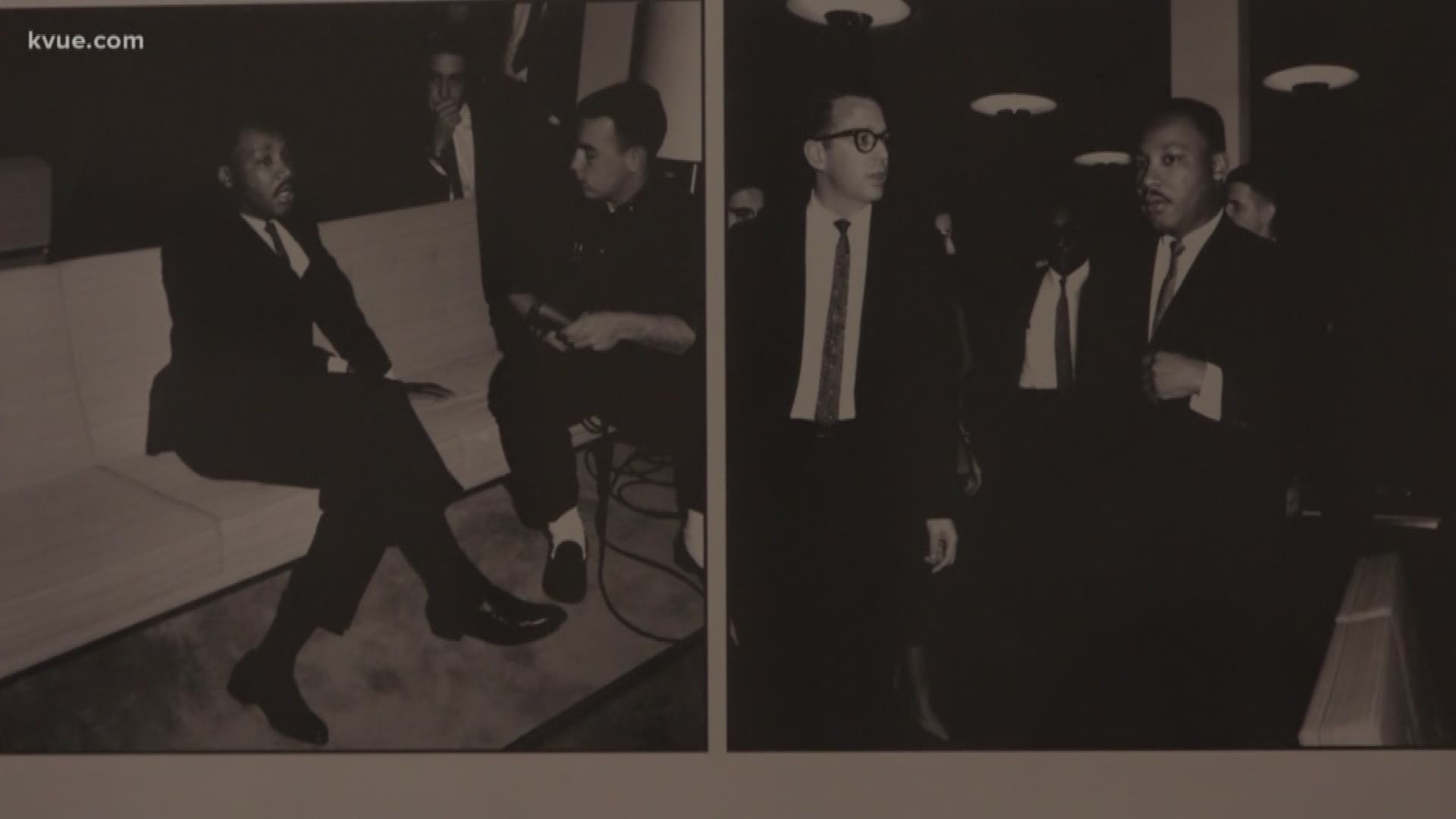AUSTIN — AUSTIN -- Fifty years after the death of Dr. Martin Luther King Jr., the University of Texas is remembering a 1962 visit from the civil rights leader.
King spoke at UT in March 1962 and spent the night on campus due to a last-minute change of plans.
The university displayed King's visit in the African-American Culture Room Wednesday.
RELATED:
King made his memorable appearance on March 9, 1962, when he addressed 1,200 people in The Texas Union Ballroom. King spoke about the history of race relations in America and called for cooperation among the federal government, local communities and African-Americans to end segregation and to defeat the culture of racism, according to the display. He also advocated employing the principle of universal love as a method to "secure moral ends through moral means."
A room was reserved for Dr. King at the Driskell Hotel, but a last-minute change in plans made him spend the night at the Union. University officials feared that some guests at the Driskell Hotel might not be very welcoming of King. Due to the concern, UT invited him to stay overnight on campus.
The African-American Culture Room MLK display said Shirley Bird Perry -- who was a staff advisor to the Union Speakers Committee at the time and went on to serve as union director, UT vice president for development, UT System vice chancellor and later UT senior vice president -- purchased linens and towels and brought articles from her home to decorate the room King stayed in.
King was a prominent figure in the Montgomery bus boycott in 1955 and was assassinated in Memphis, Tennessee, on April 4, 1968. His death inspired generations of social and political reformers, which led to profound changes in America regarding civil rights for African-Americans.

